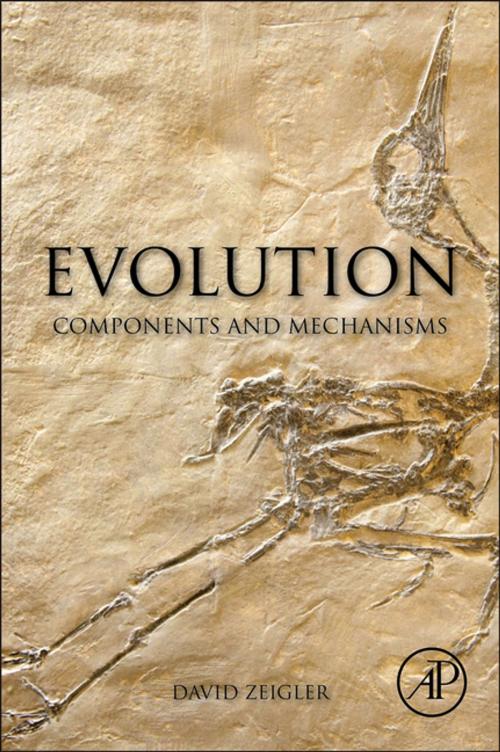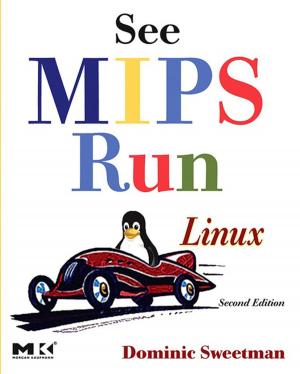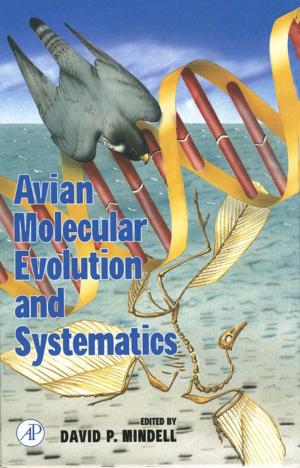Evolution
Components and Mechanisms
Nonfiction, Science & Nature, Science, Other Sciences, Molecular Biology, Biological Sciences, Ecology| Author: | David Zeigler | ISBN: | 9780128004173 |
| Publisher: | Elsevier Science | Publication: | April 14, 2014 |
| Imprint: | Academic Press | Language: | English |
| Author: | David Zeigler |
| ISBN: | 9780128004173 |
| Publisher: | Elsevier Science |
| Publication: | April 14, 2014 |
| Imprint: | Academic Press |
| Language: | English |
Evolution: Components and Mechanisms introduces the many recent discoveries and insights that have added to the discipline of organic evolution, and combines them with the key topics needed to gain a fundamental understanding of the mechanisms of evolution. Each chapter covers an important topic or factor pertinent to a modern understanding of evolutionary theory, allowing easy access to particular topics for either study or review. Many chapters are cross-referenced.
Modern evolutionary theory has expanded significantly within only the past two to three decades. In recent times the definition of a gene has evolved, the definition of organic evolution itself is in need of some modification, the number of known mechanisms of evolutionary change has increased dramatically, and the emphasis placed on opportunity and contingency has increased. This book synthesizes these changes and presents many of the novel topics in evolutionary theory in an accessible and thorough format.
This book is an ideal, up-to-date resource for biologists, geneticists, evolutionary biologists, developmental biologists, and researchers in, as well as students and academics in these areas and professional scientists in many subfields of biology.
- Discusses many of the mechanisms responsible for evolutionary change
- Includes an appendix that provides a brief synopsis of these mechanisms with most discussed in greater detail in respective chapters
- Aids readers in their organization and understanding of the material by addressing the basic concepts and topics surrounding organic evolution
- Covers some topics not typically addressed, such as opportunity, contingency, symbiosis, and progress
Evolution: Components and Mechanisms introduces the many recent discoveries and insights that have added to the discipline of organic evolution, and combines them with the key topics needed to gain a fundamental understanding of the mechanisms of evolution. Each chapter covers an important topic or factor pertinent to a modern understanding of evolutionary theory, allowing easy access to particular topics for either study or review. Many chapters are cross-referenced.
Modern evolutionary theory has expanded significantly within only the past two to three decades. In recent times the definition of a gene has evolved, the definition of organic evolution itself is in need of some modification, the number of known mechanisms of evolutionary change has increased dramatically, and the emphasis placed on opportunity and contingency has increased. This book synthesizes these changes and presents many of the novel topics in evolutionary theory in an accessible and thorough format.
This book is an ideal, up-to-date resource for biologists, geneticists, evolutionary biologists, developmental biologists, and researchers in, as well as students and academics in these areas and professional scientists in many subfields of biology.
- Discusses many of the mechanisms responsible for evolutionary change
- Includes an appendix that provides a brief synopsis of these mechanisms with most discussed in greater detail in respective chapters
- Aids readers in their organization and understanding of the material by addressing the basic concepts and topics surrounding organic evolution
- Covers some topics not typically addressed, such as opportunity, contingency, symbiosis, and progress















